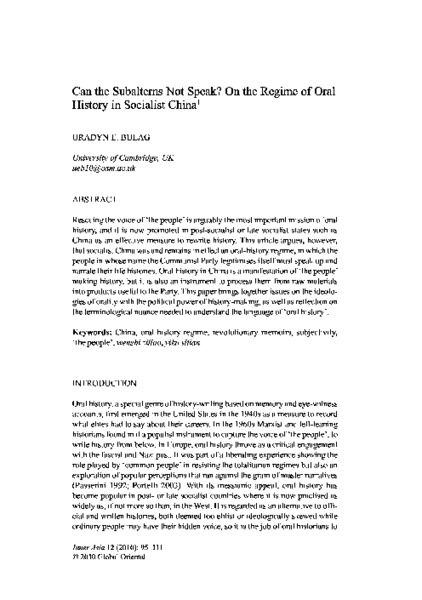Can the subalterns not speak? On the regime of oral history in Socialist China
Metadata
collection
Uradyn Bulag: Mongolian nationalism and ethnicity
identifier
c2614acd-42b7-408e-9e17-e747d22527de
creator
type
coverage
description
Rescuing the voice of ‘the people’ is arguably the most important mission of oral history, and it is now promoted in post-socialist or late socialist states such as China as an effective measure to rewrite history. This article argues, however, that socialist China was and remains in effect an oral-history regime, in which the people in whose name the Communist Party legitimises itself must speak up and narrate their life histories. Oral history in China is a manifestation of ‘the people’ making history, but it is also an instrument to process them from raw materials into products useful to the Party. This paper brings together issues on the ideologies of orality with the political power of history-making, as well as reflection on the terminological nuance needed to understand the language of’ oral history’ .
publisher
Inner Asia
source
Inner Asia 12(2010): 95–111
subject
date
2011
language
files
| metadata-en | docx | 94.0 KiB | 2018-01-09 09:39:55 |
